Moss in garden landscaping
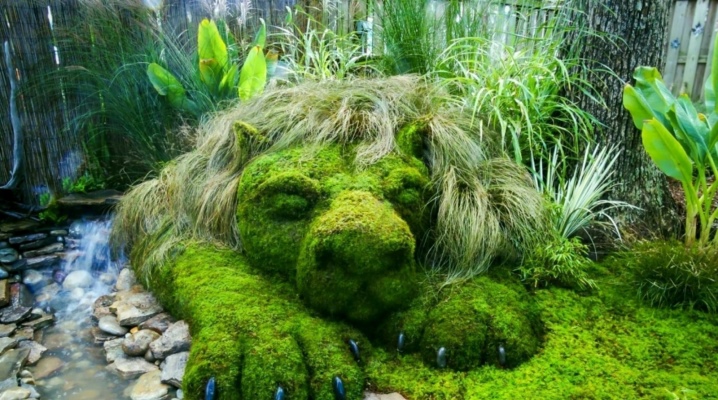
One of the basic elements of landscape design is moss, bryophyte. This evergreen plant serves as an excellent basis for the embodiment of a variety of, sometimes diametrically opposed design ideas. Where there is moisture and shade, there is moss, and this is, indeed, an accurate characteristic. Moss is one of the features of Japanese gardens - it will also be visible in the wall of an ancient castle, it simply attacks old stone paths. And everywhere he is not a weed, but a tool that helps the site to become more romantic, more holistic.
It is this element that makes the territory a favorite garden, and a place outside the city - a corner for the soul.
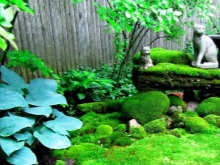
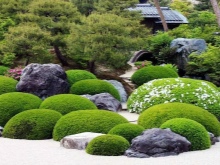
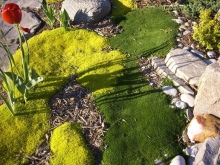
Advantages and disadvantages
Garden moss is pleasant to the eye, you just want to stroke it, drown with your fingers in a soft and pleasant swell. Although, perhaps, not everyone wants to do this. Associations with moss can arise, although they are easily destroyed by the correct design approach using moss.
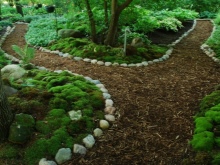
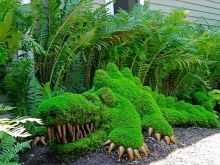

The advantages of moss on the site:
-
it is a very unpretentious plant to care for;
-
it can cover a wide variety of surfaces, even stones and boulders;
-
moss helps to retain moisture in the soil;
-
it purifies the air, absorbs not the most pleasant odors, enriches the environment with oxygen.
He has only one minus - it sometimes grows, beyond any desire of the owner of the site... But you can fight this, and there are different ways - from fighting the shadow to the device of drainage and dry cleaning.
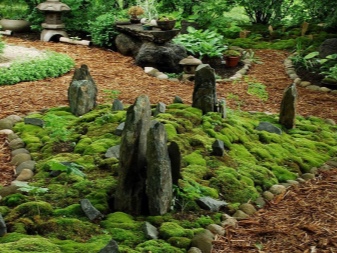
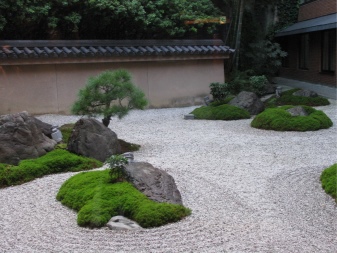
Overview of varieties
If we talk specifically about garden decorative moss, there are types that will be in demand in the country.
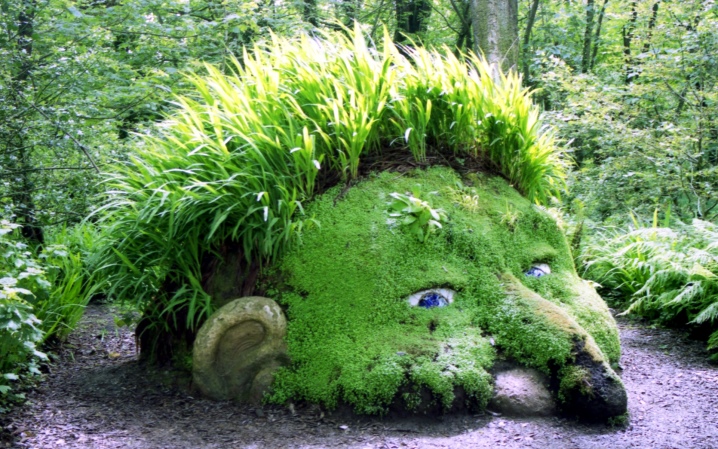
Let's take a look at several popular types of moss.
-
Dikranum... Very pleasant visually, representing soft pads of bright green color, grows several centimeters in height. Typically, vertical surfaces in the garden are filled with this moss.
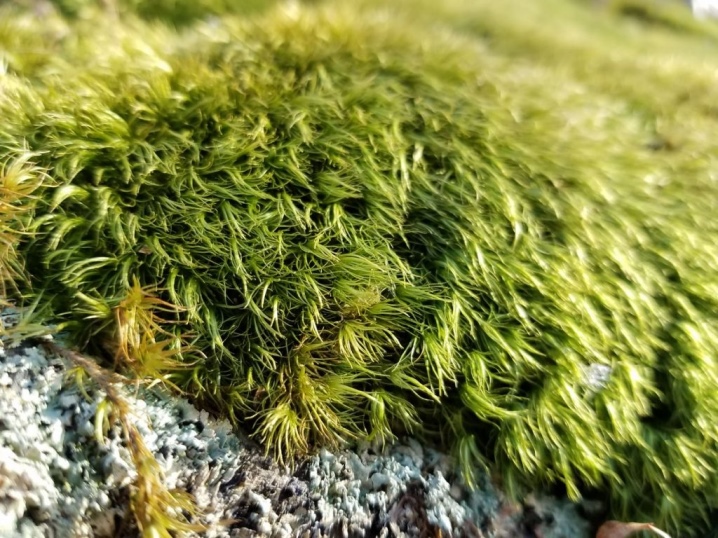
- Leucobry... It will be a good choice for planting in soils with a lot of sand, and also suitable for damp areas that lack sunlight.
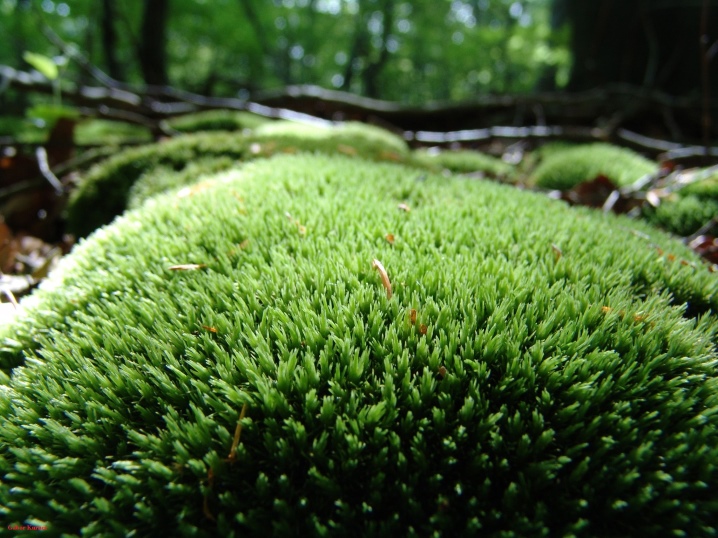
- Hypnova... They are usually used to decorate the surfaces of natural stone or concrete objects. He knows how to gently envelop them.
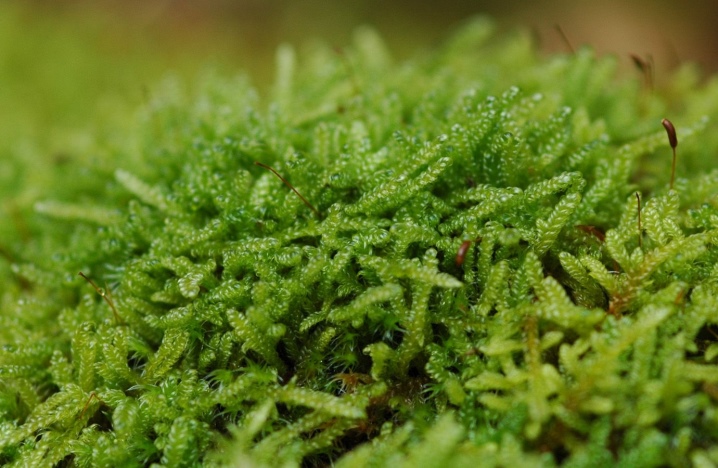
- Kukushkin flax. Those very upright vertical posts that are so suitable for Japanese gardens.
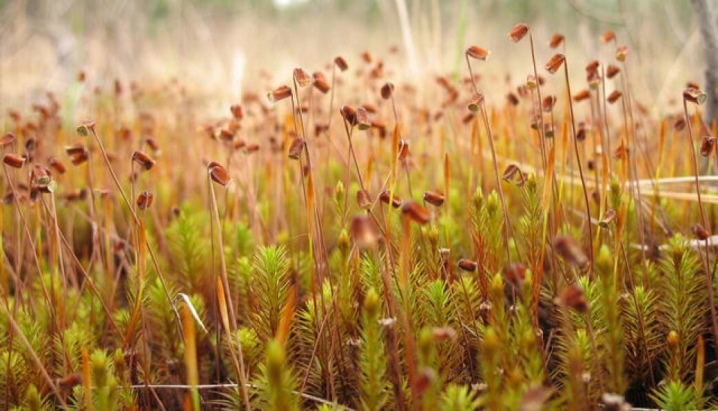
- Fern... If you need to arrange thickets on the site, it will be the ideal choice. Pleases with its carved leaves.
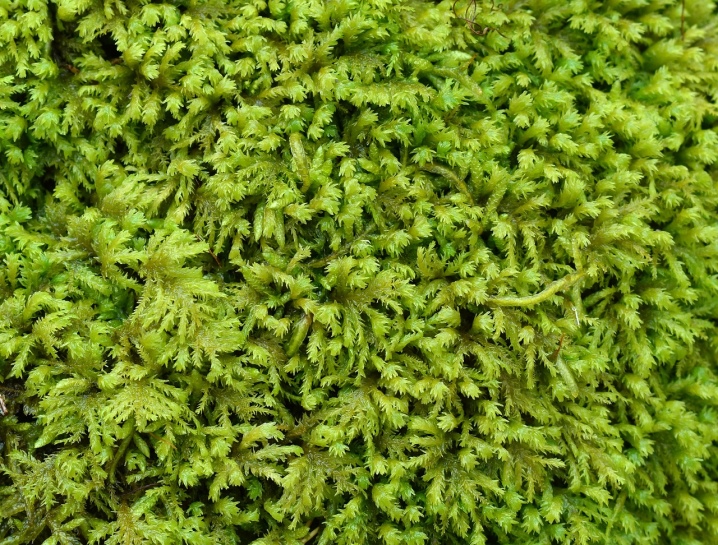
- Sphagnum... Both for the street and for the house - a universal type of moss.
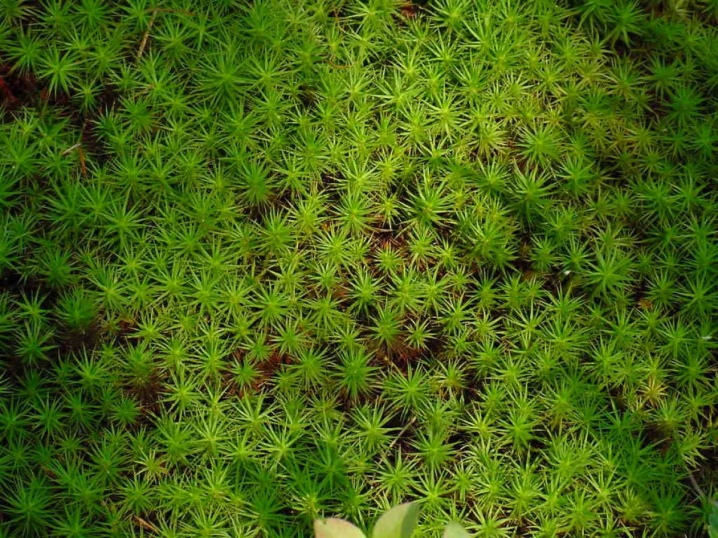
These are only species, and there are even more varieties. Already by the names alone, one can understand what the features of the varieties are: pink, silver, creeping, flowering and many others.
And for landscape decoration, Irish moss or bryozoan is used - a perennial plant that is very convenient to grow.
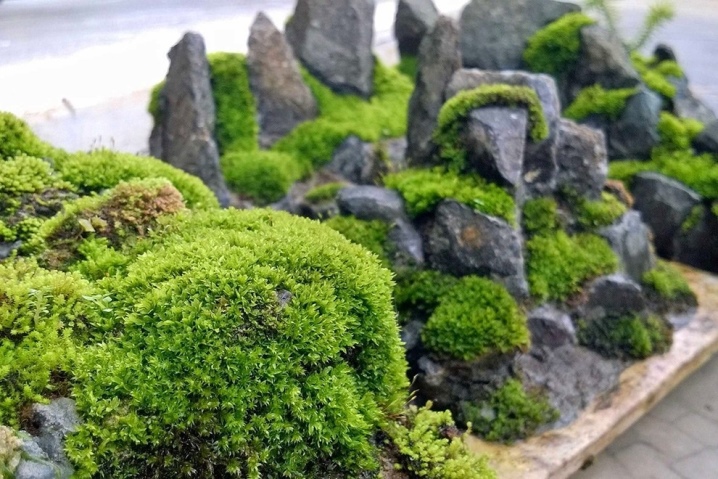
Where is it used?
If you create conditions of constant moisture and thick shade, the moss on the site will grow anywhere. But you want the landscape to be thoughtful, the moss did not grow chaotically, but in an orderly manner.
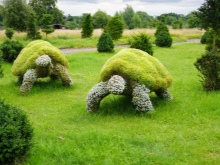
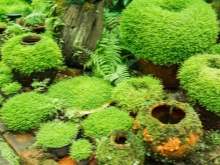
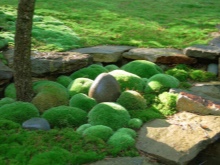
On the walls
Indeed, moss often appears on the surfaces of stones and sculptures, decorative figures. It can also be planted so that it gracefully covers the wall, makes patterns by itself. There are a lot of ideas: moss can become both a self-sufficient plant decoration on the wall of a house or building on the territory, or be combined with other plants.
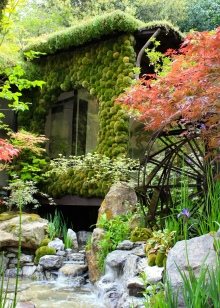
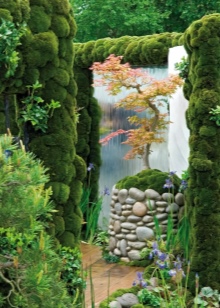
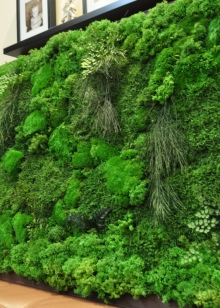
You can highlight some part of the house with moss: back wall, terrace, porch with visor, defined area.You can create a solid corner, as if repeating the motives of an old English garden - deliberately aged, atmospheric, impressive with a combination of colors, textures, combinations of plants.
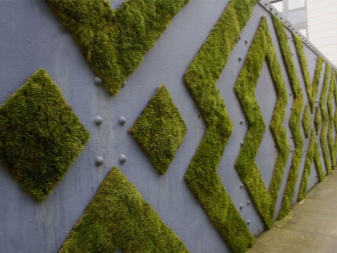
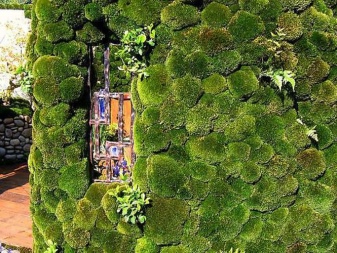
On lawns and lawns
There are two popular options here - replace the lawn grass with moss or make a beautiful green border for the garden path... You can, again, highlight zones, plots, flower beds, use it to frame individual territories. This is very beautiful and an alternative to the usual neat green grass lawns: if there are stones on the site, there will be a more appropriate decor.
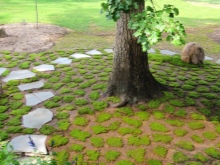
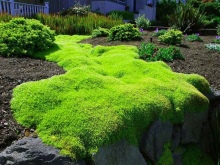
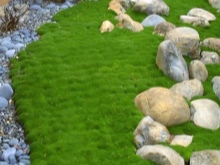
Lawn moss will perfectly highlight beautiful shrubs and trees. But we must take into account that it grows slowly and still requires care. If you let things take their course, you can face such an unpleasant phenomenon as mold.
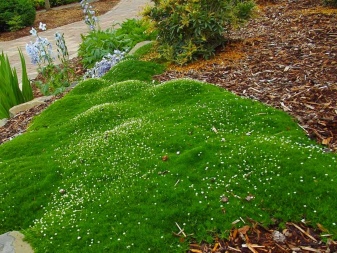
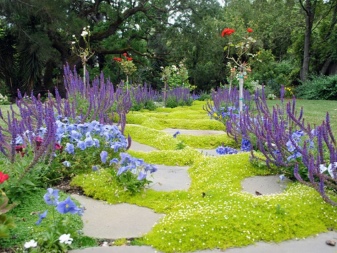
Growing tips
When preparing the ground for planting moss, it should be borne in mind that moss removed from the bark of a tree can be planted only on trees, and taken from the soil - planted only on the ground.
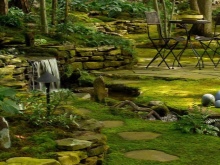
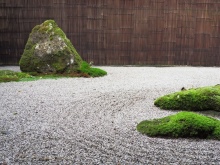
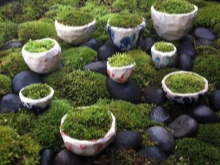
Moss planting is characterized by some peculiarities.
-
From any individual colony, you need to take very little moss, otherwise, the colony may not regenerate subsequently. As noted, moss does not grow very quickly.
-
A layer of crushed stone or gravel should precede the drainage layer. All this is covered with a black earth layer, and then the moss is planted.
-
It is necessary to prepare a solution from a couple of glasses of natural yogurt (can be replaced with kefir), mix it with a glass of crushed moss. This mixture should smear the landing sites.
-
Before planting, the moss will have to be soaked in water for 24 hours - so it will be well saturated with moisture... Then he goes to the moist soil. Vegetation at this time is especially sensitive to watering, this is the main care.
-
The first two months, you need to water the moss pillow daily, and then you can cut back on watering - even once a week will be enough.
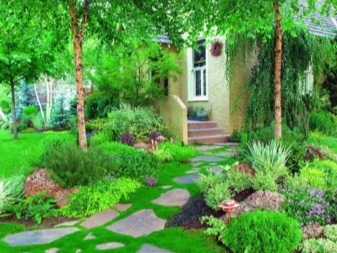
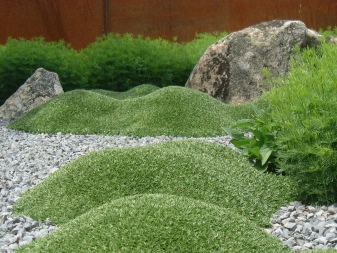
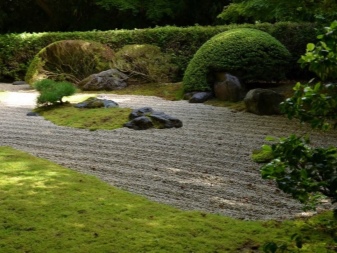
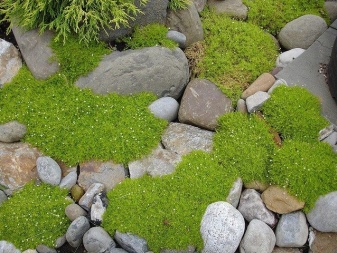
How you manage to propagate and grow moss depends on the success of the choice of location. If it is an open area, the risks of non-survival are high. If it is a shade and there is no abundance of neighboring plants, success is likely. In the north and west of the site, moss takes root best.
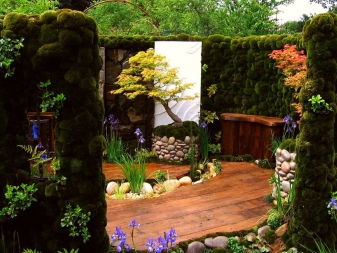
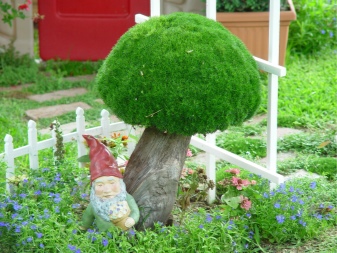
Beautiful examples in landscape design
Several illustrations, once again confirming that mossiness is often the best compliment.
Let's look at 10 examples of how moss gracefully transforms an area.
-
If large forms are still frightening, but you want to play with such a fertile material, you can do garden sculptures. Such a cute turtle will be a favorite of the hosts and guests, no doubt about it.
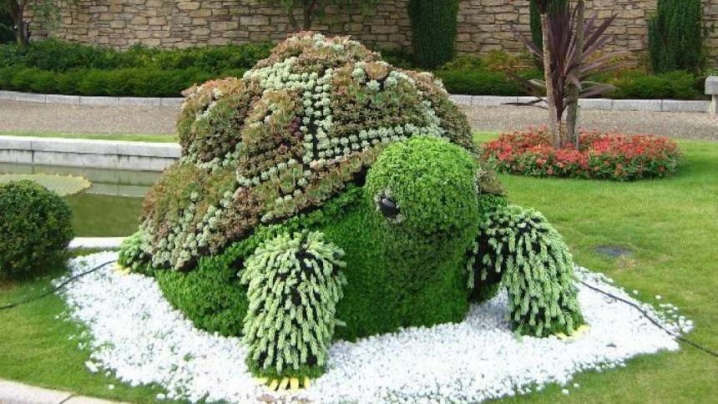
- The garden table takes on a completely different solidity when such a chic carpet is spread under it. He gracefully peeps through the stones and wraps himself around this patch.
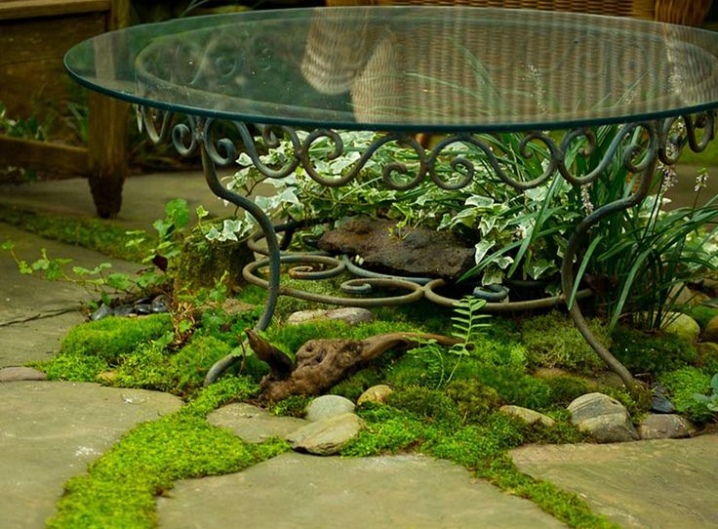
- Some part of the site, a small building on its territory, can be completely suede - you get a completely atmospheric, fabulous place.
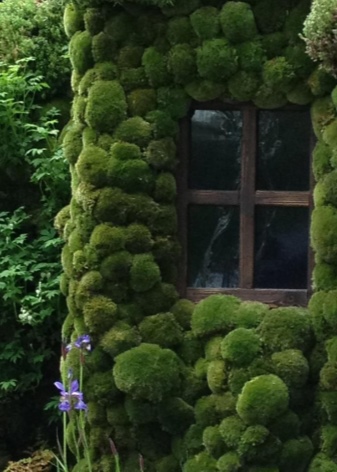
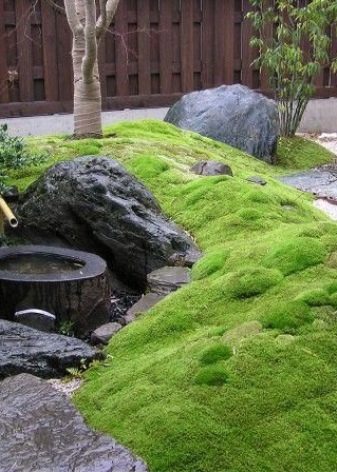
- Another version of how you can beat a street table. With such a pedestal, even a modest structure will look luxurious. And not only the table, here practically the whole “room” is given over to moss.
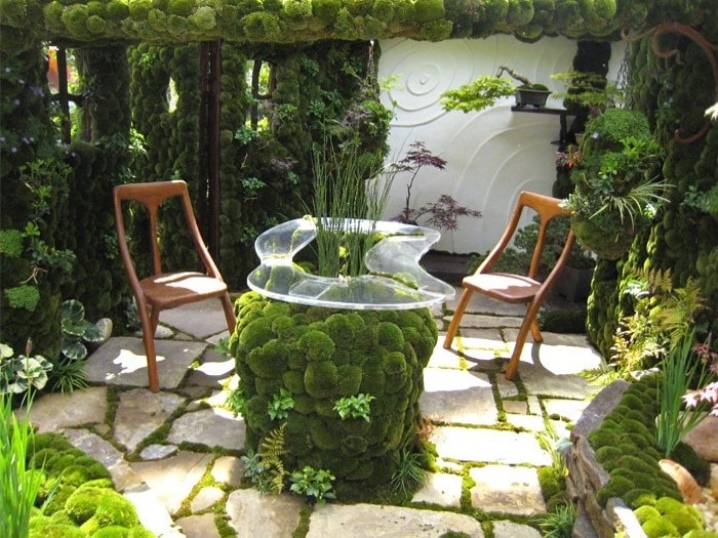
- If the territory is large, you can also afford such experiments: along the stone paths and steps, the soft plant pile looks the most organic.
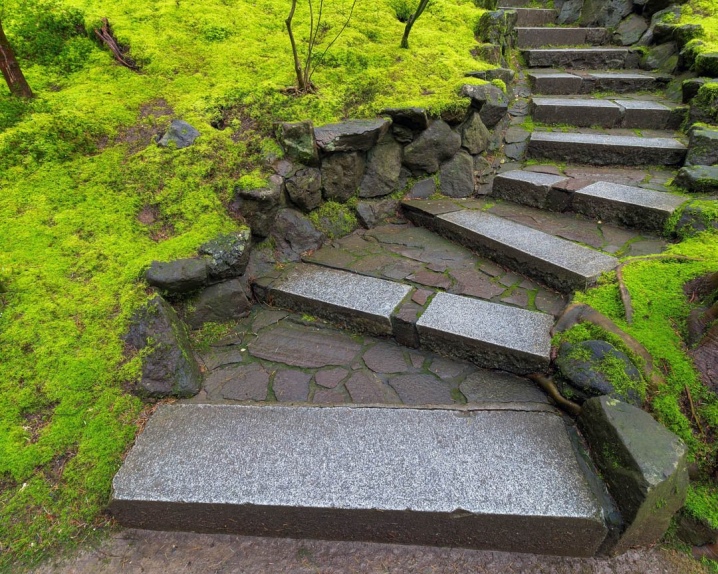
- Decorative material likes to stick around surfaces, especially stones, and a person with a designer look will find a use for this. And if it is so exquisite, the folk path will not grow to this place.
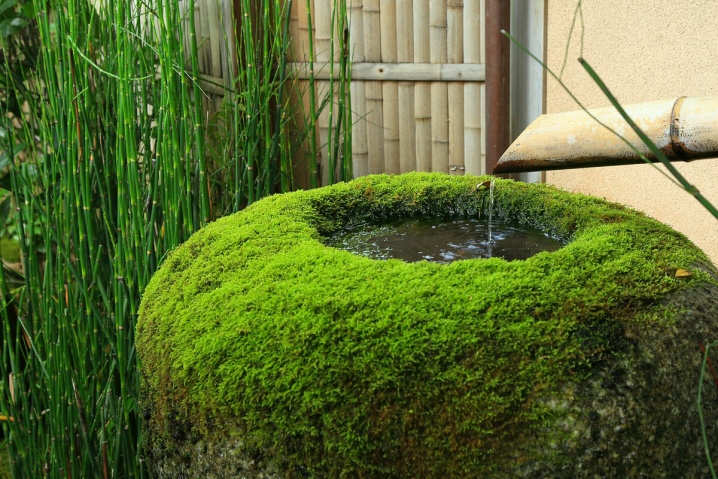
- For vertical gardening, soft decor is also good: for example, for such a natural wall decoration right in the garden. A great place for relaxation can turn out.
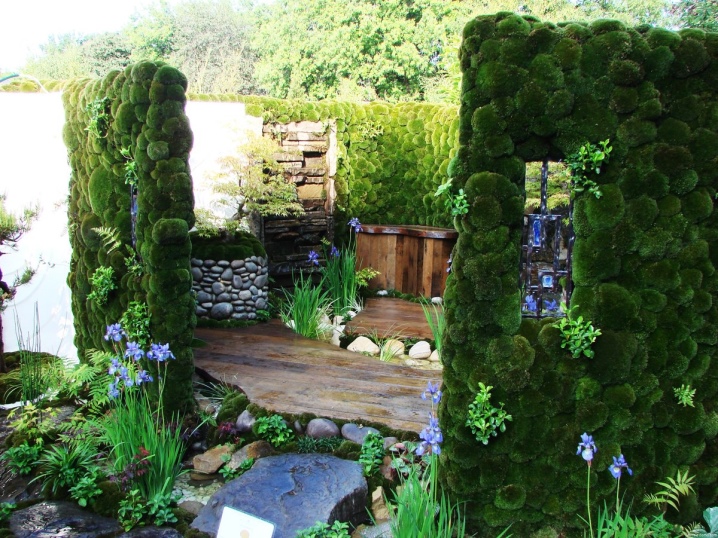
- Small landscaping right on the terrace looks stylish and unbeatable. Requires timely care.
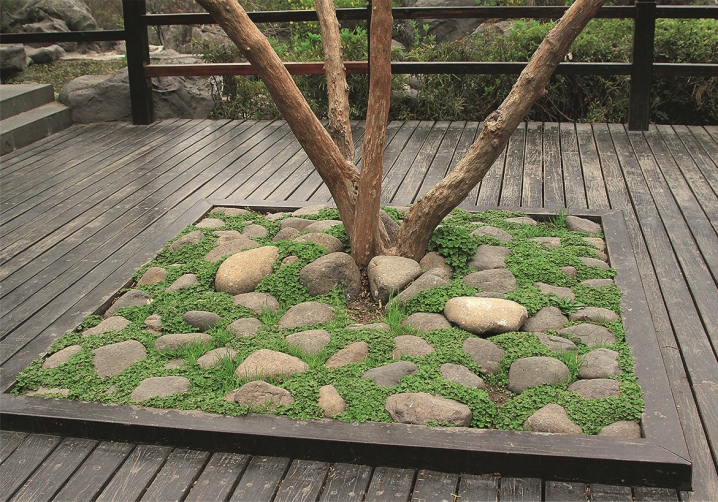
- If you are tired of ordinary flower beds, and you want to amaze others with something, such Asian-style compositions can be a worthy replacement for traditional forms.
A mini-garden, a wonderful miniature, and maybe a project for the future global landscaping of the site with the help of moss.
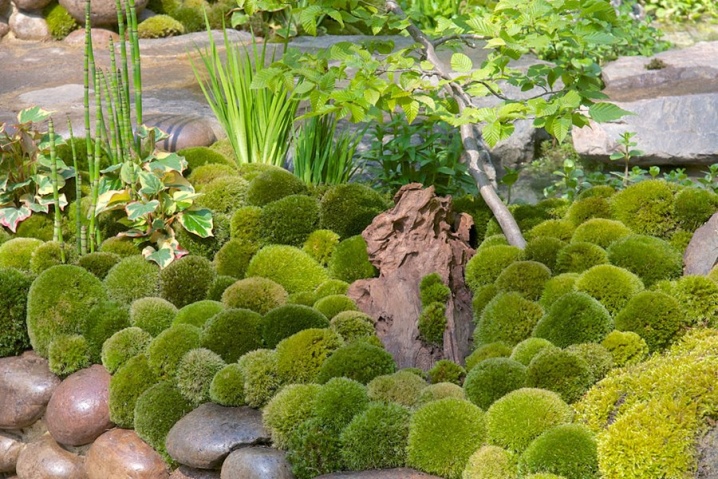
- Very softly, very delicately, the green pile passes from the soil to the stones, gently enveloping them. This is a landscape design that does not tolerate strain and artificiality, it looks as natural as possible.
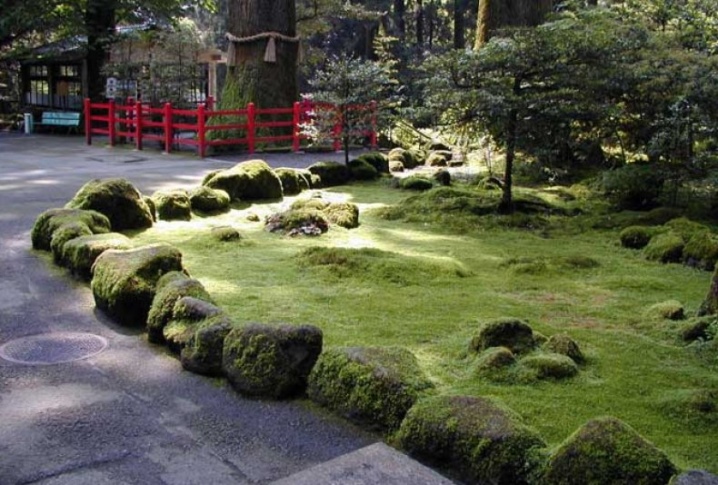











The comment was sent successfully.